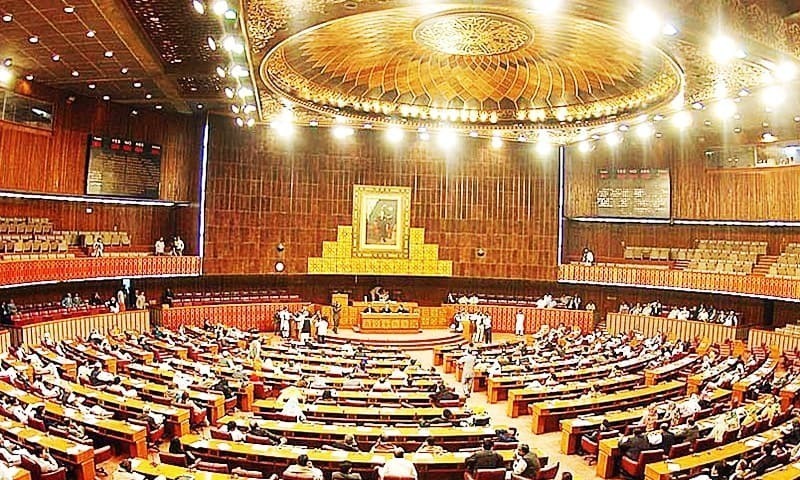Constitutional amendments took center stage in the National Assembly on Monday as a fiery debate unfolded. The session, originally set for 11am yesterday, was delayed until late night before being adjourned indefinitely.
The debate revolves around the government’s proposed constitutional amendment bill. This comes after the ruling coalition struggled to secure a two-thirds majority in parliament despite intense efforts. The key issue involved Jamiat Ulema-e-Islam-Fazl (JUI-F) Chief Maulana Fazlur Rehman’s stance on the amendments.
The session’s delay was due to the ruling coalition’s failure to convince Fazl to support the amendments. Despite efforts, Fazl required more time to review the draft. Senator Irfan Siddiqui from the Pakistan Muslim League-Nawaz (PML-N) announced that the government’s attempt to advance the amendments had been “postponed indefinitely.”
Constitutional amendments are also linked to speculations about extending the tenure of Chief Justice of Pakistan (CJP) Qazi Faez Isa, who is set to retire in October. The Pakistan Tehreek-e-Insaf (PTI) had previously requested an early notification for the next top judge.
Defence Minister Khawaja Asif emphasized that the draft aimed to address constitutional imbalances and was not politically motivated. He noted that the constitution permits parliament to legislate and stressed that the draft would be presented once a consensus was reached.
Adviser to the Prime Minister Rana Sanaullah stated that meetings with Maulana Fazl were productive, though they needed more time. He highlighted that the indefinite adjournment of the session was to allow for further consultation.
PTI leader Asad Qaiser criticized the government for its approach. He questioned the legitimacy of the draft, arguing that it should be debated openly in the House rather than being discussed in secret.
Law Minister Azam Nazeer Tarar responded, saying the draft would be made public once the bill was approved by the cabinet. He described the draft as a “working paper” and assured that it would benefit the public, particularly addressing long-standing court cases.
Tarar reiterated that the proposed amendments were part of the Charter of Democracy and that they would be refined in consultation with all political parties. He added that the amendments aimed to set the direction for the country and would not interfere with the judiciary’s role in fixing commodity rates.


